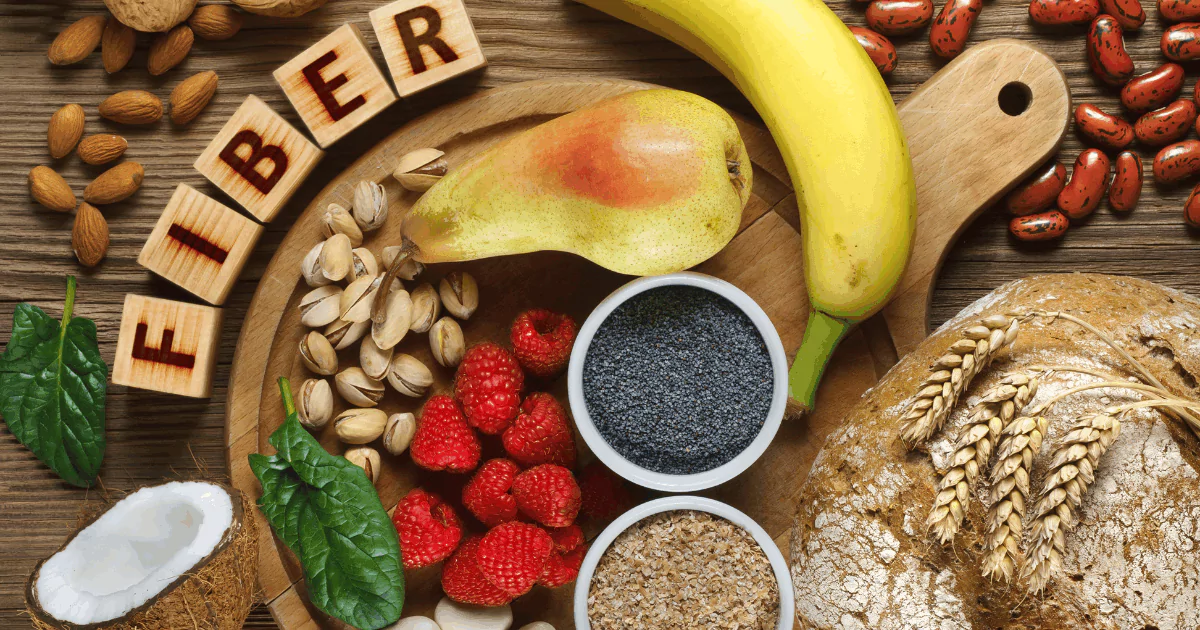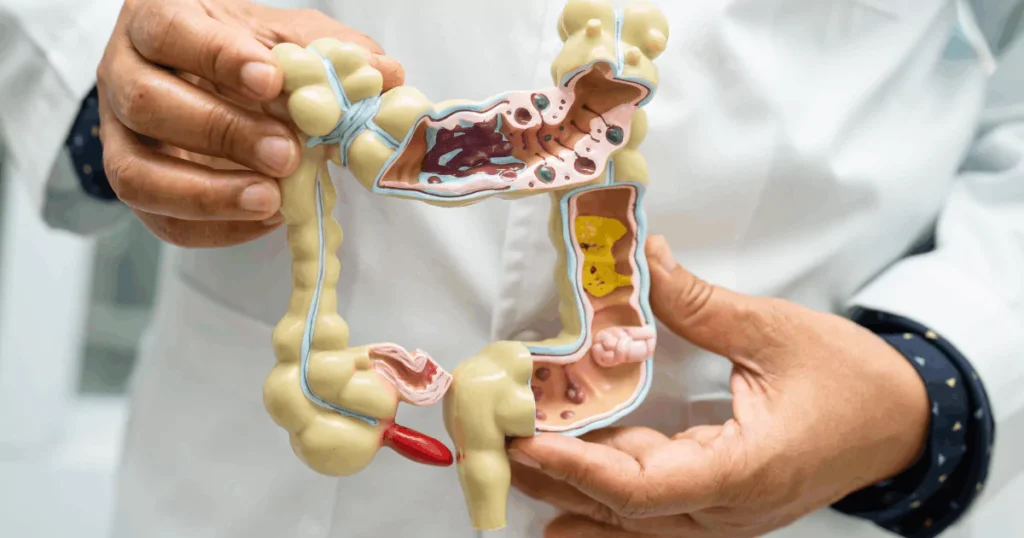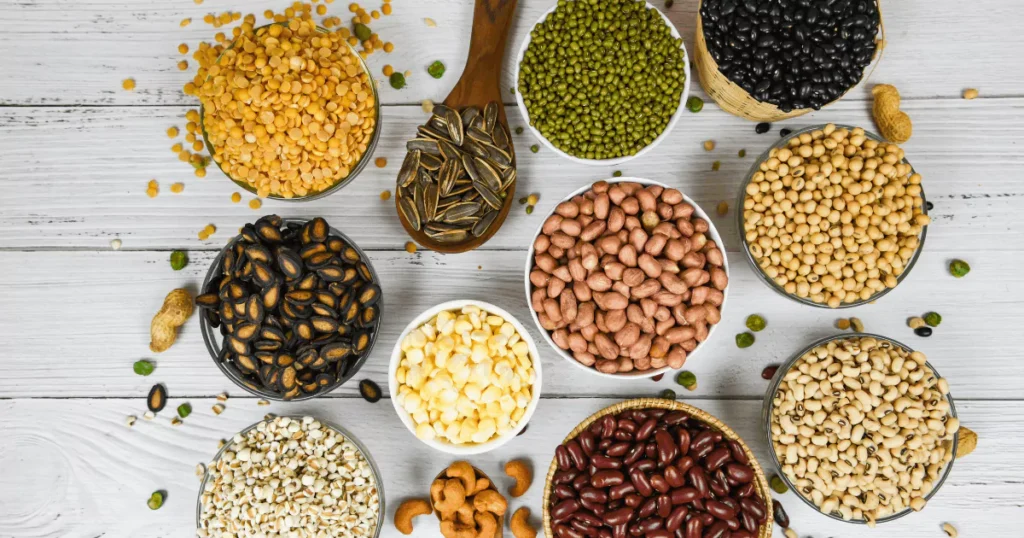The role of fiber in weight loss and digestive health is crucial for maintaining a healthy body. Fiber aids digestion by promoting regular bowel movements and preventing constipation, enhancing digestive health. It also helps in weight loss by making you feel fuller for longer periods, reducing overeating and unhealthy snacking. Foods rich in fiber, such as fruits, vegetables, and whole grains, are low in calories but high in volume, making them excellent choices for those aiming to shed extra pounds.
The role of fiber in weight loss and digestive health is further emphasized by its ability to regulate blood sugar levels, which helps prevent cravings and spikes in insulin. Additionally, fiber supports the growth of beneficial gut bacteria, improving overall digestive health. Incorporating fiber-rich foods into your diet can significantly impact both weight loss and digestive health in a sustainable and natural way.

Role of Fiber in Weight Loss and Digestive Health
Fiber plays a crucial role in maintaining overall health, particularly when it comes to weight management and digestive function. Yet, many people overlook its importance in their daily diet. This comprehensive guide explores how fiber aids in weight loss and promotes digestive health, shedding light on the types of fiber, its benefits, and how to incorporate it into your diet effectively.
What Is Fiber?
The Role of Fiber in Weight Loss and Digestive Health is crucial for maintaining overall well-being. Fiber, a type of carbohydrate that the body cannot digest, plays an essential part in regulating digestion and supporting healthy weight management. Unlike sugars and starches, fiber remains largely undigested as it passes through the digestive system, adding bulk to the stool and promoting regular bowel movements.
By increasing satiety, fiber helps control appetite, making it easier to manage calorie intake and support weight loss efforts. The Role of Fiber in Weight Loss and Digestive Health also involves improving gut bacteria, which positively impacts metabolism and nutrient absorption. Additionally, consuming fiber-rich foods can reduce the risk of digestive issues like constipation and promote a healthy gut environment. Overall, The Role of Fiber in Weight Loss and Digestive Health is indispensable for anyone looking to enhance their digestive system and achieve sustainable weight management.
There are two main types of fiber:
- Soluble Fiber: Dissolves in water and forms a gel-like substance, which slows digestion. It’s found in foods like oats, beans, fruits, and vegetables.
- Insoluble Fiber: Doesn’t dissolve in water and helps food pass more quickly through the digestive system, promoting regular bowel movements. It’s found in whole grains, nuts, seeds, and the skin of some fruits and vegetables.
Both types of fiber are essential for different bodily functions, including weight loss and digestive health.
How Fiber Helps with Weight Loss
1. Increased Satiety and Reduced Appetite
The Role of Fiber in Weight Loss and Digestive Health is essential for maintaining a balanced diet and promoting overall well-being. Fiber-rich foods help manage hunger by staying in the stomach longer, expanding due to water absorption, and creating a lasting sense of fullness. The Role of Fiber in Weight Loss and Digestive Health also extends to stabilizing blood sugar levels, preventing energy dips that often lead to unhealthy snacking. By supporting stable energy and reducing cravings, The Role of Fiber in Weight Loss and Digestive Health becomes crucial for those seeking to maintain healthy eating habits.
2. Fewer Calories with High Fiber
The role of fiber in weight loss and digestive health is significant, as it contributes to a feeling of fullness without adding extra calories. Foods high in fiber, such as vegetables, fruits, and whole grains, are naturally lower in calories compared to processed and high-fat options. Including these fiber-rich foods in your diet can increase your meal volume while reducing overall calorie intake.

The role of fiber in weight loss and digestive health becomes evident when you realize that it passes through the digestive system largely undigested, providing bulk and promoting a healthy gut. Ultimately, understanding the role of fiber in weight loss and digestive health encourages individuals to make healthier food choices, leading to long-term wellness and improved quality of life.
3. Improved Metabolism and Fat Burning
The role of fiber in weight loss and digestive health is increasingly recognized in nutritional science. Research indicates that increasing fiber intake can significantly boost metabolism and enhance fat burning. These fatty acids play a vital role in regulating fat storage and improving the body’s ability to burn fat efficiently, underscoring the role of fiber in weight loss and digestive health.
Furthermore, a fiber-rich diet is associated with improved insulin sensitivity, which is crucial for effective body weight management. Insulin resistance, often linked to weight gain, can be mitigated by adequate fiber consumption, highlighting yet another aspect of the role of fiber in weight loss and digestive health.
High-Fiber Foods and Their Fiber Content
| Food | Type of Fiber | Fiber Content (per 100g) | Health Benefits |
|---|---|---|---|
| Oats | Soluble Fiber | 10.6g | High in antioxidants, it improves gut health. |
| Lentils | Soluble & Insoluble | 7.9g | It enhances digestion and provides omega-3 fatty acids. |
| Chia Seeds | Soluble & Insoluble | 34.4g | It helps lower cholesterol and stabilizes blood sugar levels. |
| Raspberries | Soluble & Insoluble | 6.5g | High in antioxidants, improves gut health. |
| Apples (with skin) | Soluble & Insoluble | 2.4g | It supports weight loss and promotes digestive regularity. |
| Broccoli | Insoluble Fiber | 2.6g | It helps reduce appetite and improves bowel regularity. |
| Almonds | Insoluble Fiber | 12.5g | High in protein, it supports metabolism and fat burning. |
| Quinoa | Soluble & Insoluble | 2.8g | It supports weight loss and promotes digestive regularity. |
| Carrots | Insoluble Fiber | 2.8g | Supports digestive regularity, rich in vitamins. |
| Whole Wheat Bread | Insoluble Fiber | 6.9g | Promotes satiety and supports digestive health. |
The Importance of Fiber in Digestive Health
1. Promotes Regular Bowel Movements
Insoluble fiber is particularly beneficial for preventing constipation. It adds bulk to the stool and helps it pass more quickly through the digestive system, reducing the risk of bloating and discomfort. This type of fiber is found in whole grains, nuts, and vegetables, making them essential parts of a balanced diet for gut health.
Regular bowel movements are crucial for comfort and for removing waste products from the body. When fiber helps keep the digestive tract moving, it reduces the risk of diverticulitis and hemorrhoids.
2. Improved Gut Flora and Digestive Balance
Soluble fiber serves as a prebiotic, which feeds the beneficial bacteria in your gut. A healthy balance of gut bacteria is essential for proper digestion and overall well-being. Gut bacteria ferment fiber into short-chain fatty acids, which have anti-inflammatory effects and contribute to gut health.

A diverse and healthy gut microbiome is linked to better digestion, improved immune function, and mental well-being. Fiber is a vital nutrient source for these bacteria, ensuring your gut remains balanced and healthy.
3. Reduces Risk of Digestive Disorders
A diet rich in fiber can reduce the risk of several digestive disorders, including irritable bowel syndrome (IBS), diverticulitis, and colorectal cancer. Fiber helps maintain the health of the digestive tract by reducing inflammation and promoting the smooth passage of food and waste.
Additionally, fiber absorbs water, softening the stool and aiding in regular elimination, preventing constipation—a major cause of digestive discomfort.
How Much Fiber Should You Eat?
The recommended daily fiber intake varies depending on age, gender, and health conditions. On average:
- Men should aim for 30-38 grams of fiber per day.
- Women should aim for 21-25 grams of fiber per day.
Unfortunately, many fall short of these recommendations, consuming far less than the suggested daily amount. It’s crucial to increase fiber intake gradually to avoid gastrointestinal discomfort and drink plenty of water to aid in fiber’s passage through the digestive system.
Best High-Fiber Foods for Weight Loss and Digestive Health

Here’s a list of fiber-rich foods to include in your diet to reap the benefits of both weight loss and digestive health:
Nuts and Seeds: Almonds, chia seeds, flaxseeds, and sunflower seeds are fiber-dense options that also provide healthy fats.
Fruits: Apples, pears, oranges, berries, and bananas are high in fiber, especially when eaten with the skin on.
Vegetables: Broccoli, Brussels sprouts, spinach, and carrots are excellent sources of dietary fiber.
Whole Grains: Brown rice, oats, quinoa, and whole wheat bread provide soluble fiber.
Legumes: Beans, lentils, and chickpeas are packed with fiber and protein, making them a great addition to a balanced diet.
Tips for Increasing Fiber Intake
If you’re looking to boost your fiber intake, here are some practical tips:
Add legumes to your meals: Incorporate beans, lentils, or peas into soups, salads, and side dishes to increase fiber intake.
Start your day with a high-fiber breakfast: Oatmeal with fruits, whole-grain cereals, or smoothies packed with fiber-rich ingredients can set the tone for a healthy day.
Incorporate more fruits and vegetables: Aim to fill half your plate with vegetables at meals and snack on fruits throughout the day.
Swap refined grains for whole grains: Choose whole wheat bread, brown rice, and whole grain pasta over their refined counterparts.
Snack smart: Opt for fiber-rich snacks such as nuts, seeds, or raw vegetables instead of processed snacks.
Conclusion
The Role of Fiber in Weight Loss and Digestive Health cannot be overstated, as it is critical in both aspects. Incorporating a balanced amount of soluble and insoluble fiber into your diet can significantly improve your digestive function while supporting weight management. The Role of Fiber in Weight Loss and Digestive Health is evident in how it helps reduce hunger by promoting a feeling of fullness, which can prevent overeating.
Fiber-rich foods like fruits, vegetables, whole grains, and legumes not only aid digestion but also lower the risk of chronic diseases, including heart disease and colon cancer. Consistently consuming enough fiber ensures that your gut health is maintained, leading to better nutrient absorption and regular bowel movements. Ultimately, The Role of Fiber in Weight Loss and Digestive Health lies in its ability to boost both digestive wellness and weight control naturally.

